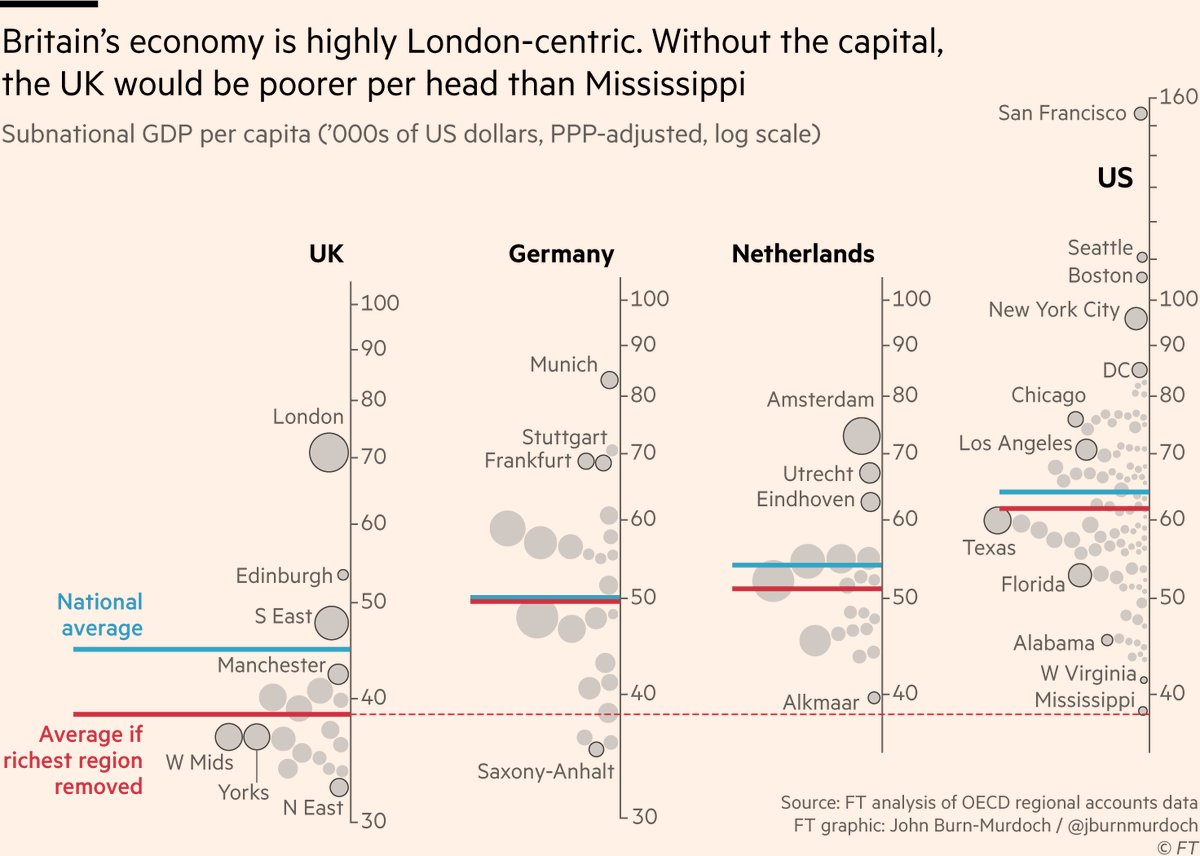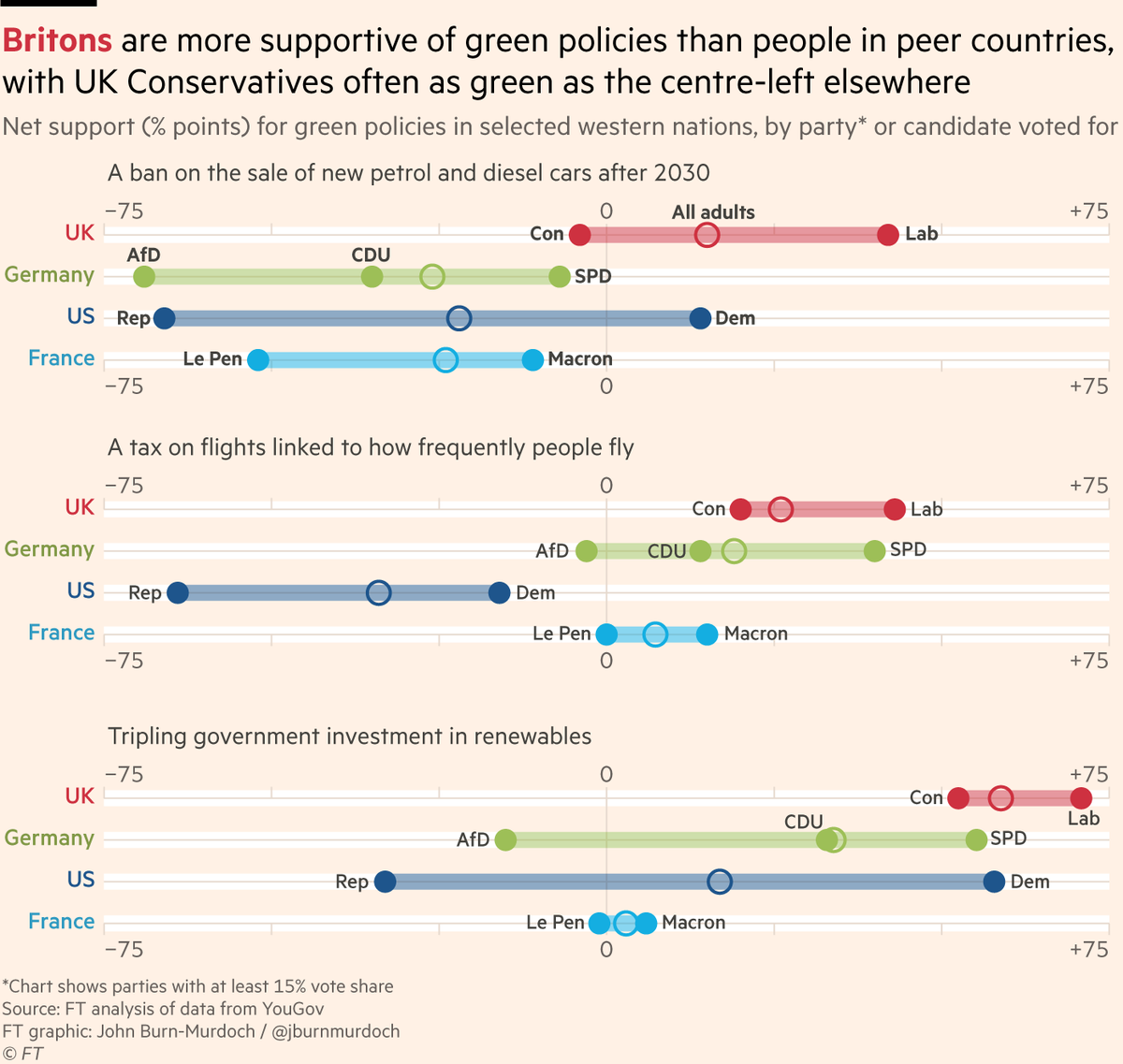NEW: we need to talk about the dire state of British transport infrastructure.
Of the 52 UK cities with 250k+ people, only 8 (15%) have a tram or metro.
In France & Germany it’s 80%, Poland is on 60%.
Even *American* cities are better served, and the US hates public transit!
Of the 52 UK cities with 250k+ people, only 8 (15%) have a tram or metro.
In France & Germany it’s 80%, Poland is on 60%.
Even *American* cities are better served, and the US hates public transit!
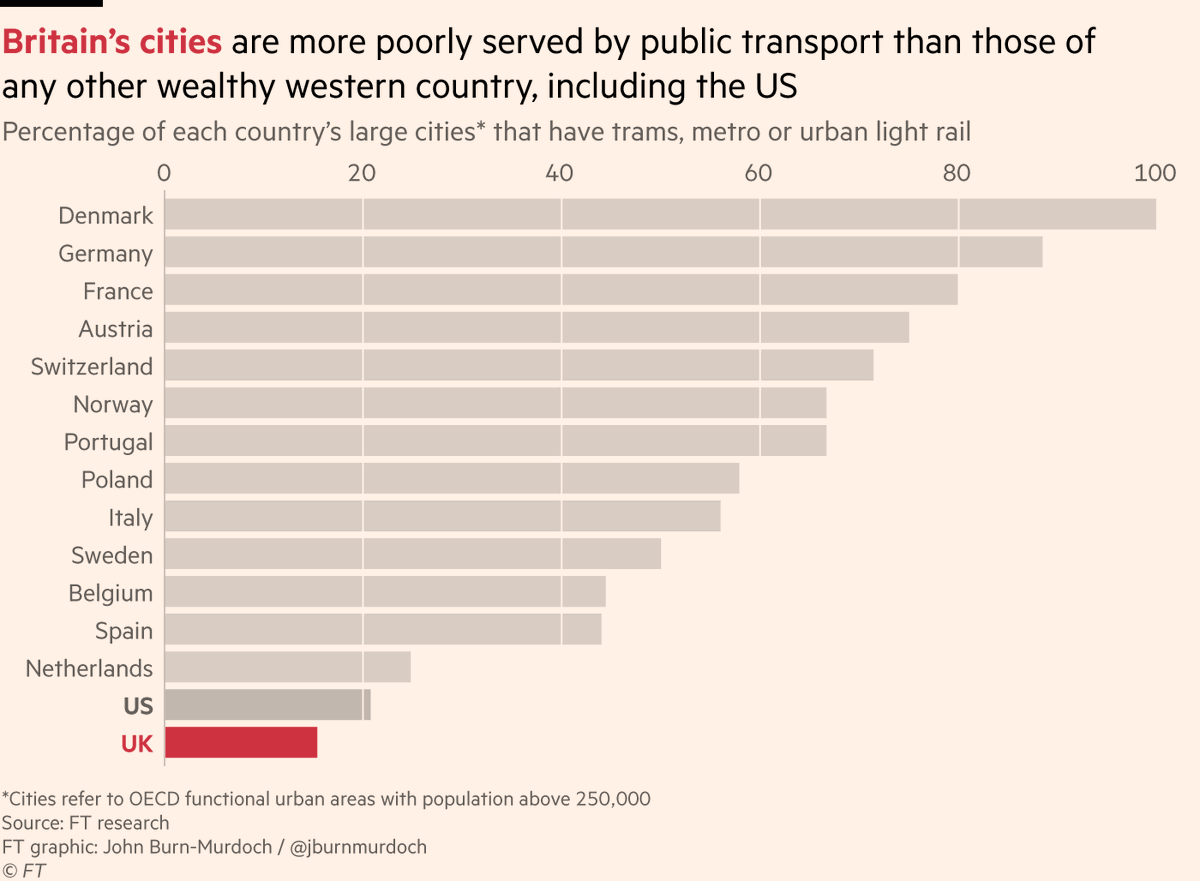
It gets worse.
US cities are poorly served by public transit, too car centric, but at least you CAN drive to/around them.
Euro cities (+ London) are the inverse: a pain to drive in, but great public transport.
Other UK cities are screwed: 💩 public transport AND bad road infra
US cities are poorly served by public transit, too car centric, but at least you CAN drive to/around them.
Euro cities (+ London) are the inverse: a pain to drive in, but great public transport.
Other UK cities are screwed: 💩 public transport AND bad road infra

European cities (+ London) have their successful transport model.
Even as someone who thinks the US is insanely car-centric and this has huge negative externalities, the US transport model does also do its job.
Most British cities outside of London are being failed by contrast.
Even as someone who thinks the US is insanely car-centric and this has huge negative externalities, the US transport model does also do its job.
Most British cities outside of London are being failed by contrast.
Why?
There are many reasons, including how British government has prevented any of its regions/cities (apart from London!) from running things themselves, but another is this:
It costs more to build public transport infrastructure in the UK than ~anywhere else in the world (!)
There are many reasons, including how British government has prevented any of its regions/cities (apart from London!) from running things themselves, but another is this:
It costs more to build public transport infrastructure in the UK than ~anywhere else in the world (!)
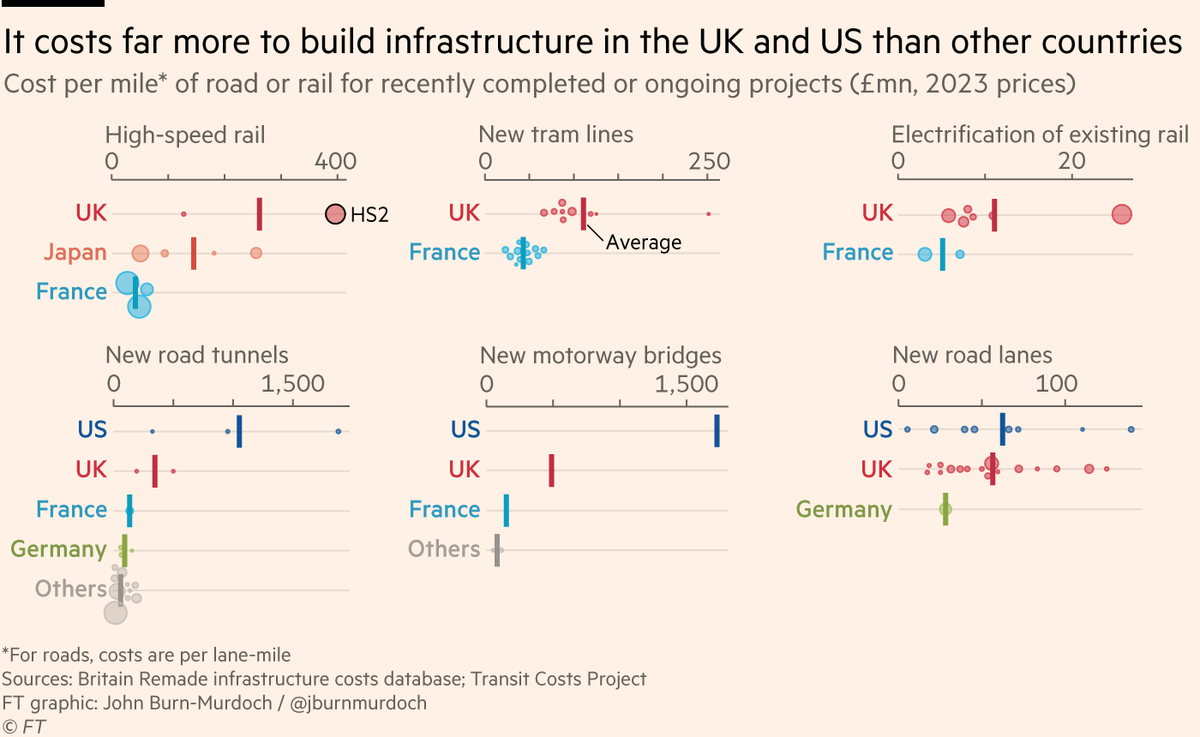
This is true from big rail projects like HS2, to trams and metro, to less glamorous (that’s right, trams are glamorous 💅) but equally vital processes like electrifying UK railway lines. 
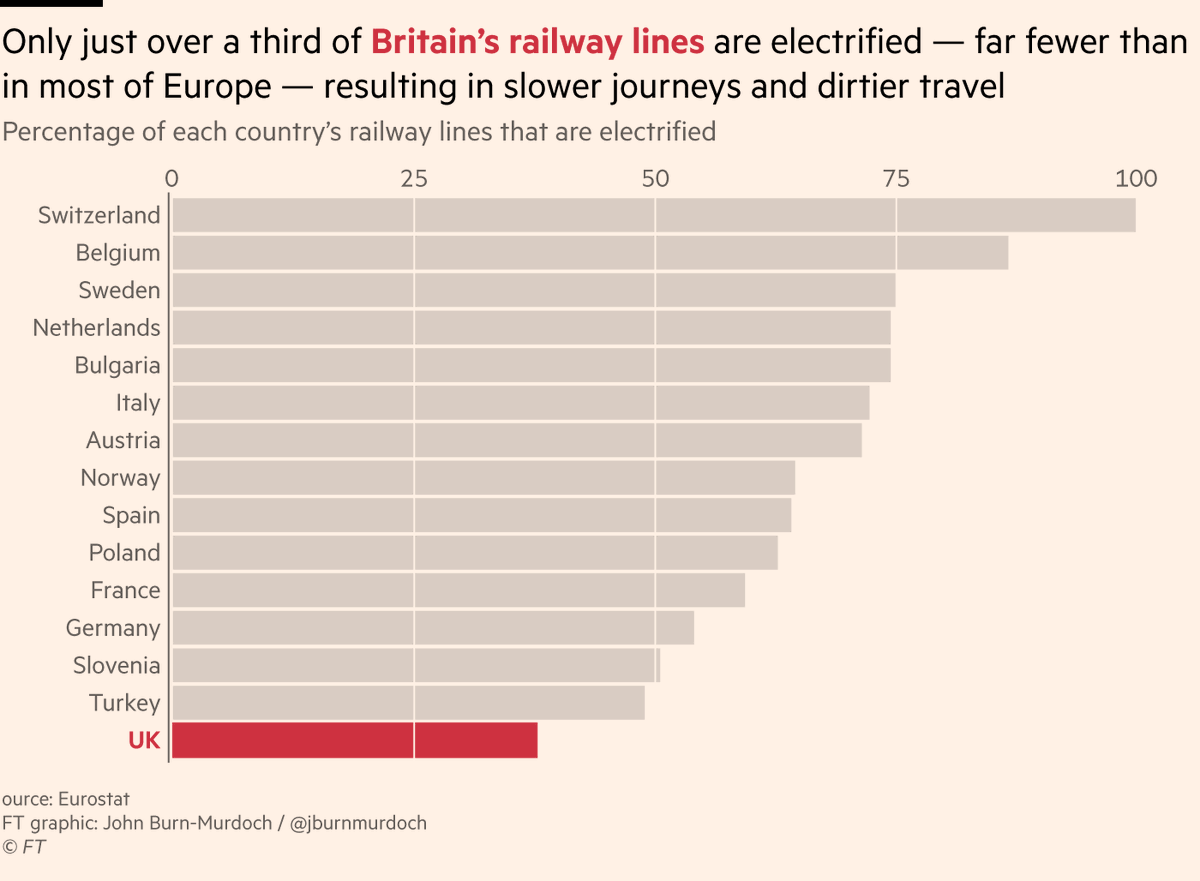
According to research from @BritainRemade, Madrid built 47 miles of new underground lines for half the cost of extending one London Tube line by 10 miles.
In France, Besançon built a tramway for £29m/mile. Manchester's Second City Crossing tram extension cost £252m/mile.
In France, Besançon built a tramway for £29m/mile. Manchester's Second City Crossing tram extension cost £252m/mile.
@Sam_Dumitriu has a startling and comprehensive run-down here of quite how expensive this stuff has become in Britain (and the US), and the many factors that had led to this point
https://twitter.com/Sam_Dumitriu/status/1694990887439233239
One thing that has contributed is good old fashioned Nimbyism.
Objections create delays, call for expensive (and almost never useful) consultations, thousands of pages of costly environmental impact statements, and often result in re-routing roads and rail at huge cost.
Objections create delays, call for expensive (and almost never useful) consultations, thousands of pages of costly environmental impact statements, and often result in re-routing roads and rail at huge cost.
And the best part?
Quite often, the very same people who devote themselves to tirelessly campaigning over noise or aesthetics, end up saying "you know what actually it was fine" 🙃
ft.com/content/9dd489…

Quite often, the very same people who devote themselves to tirelessly campaigning over noise or aesthetics, end up saying "you know what actually it was fine" 🙃
ft.com/content/9dd489…

One study found that Nimbyism directly adds huge cost to transport infrastructure projects by causing routes to be made longer and fiddlier to accommodate local objections over environmental impact
This adds millions, and then people acknowledge that actually it didn’t matter 🤦♂️
This adds millions, and then people acknowledge that actually it didn’t matter 🤦♂️
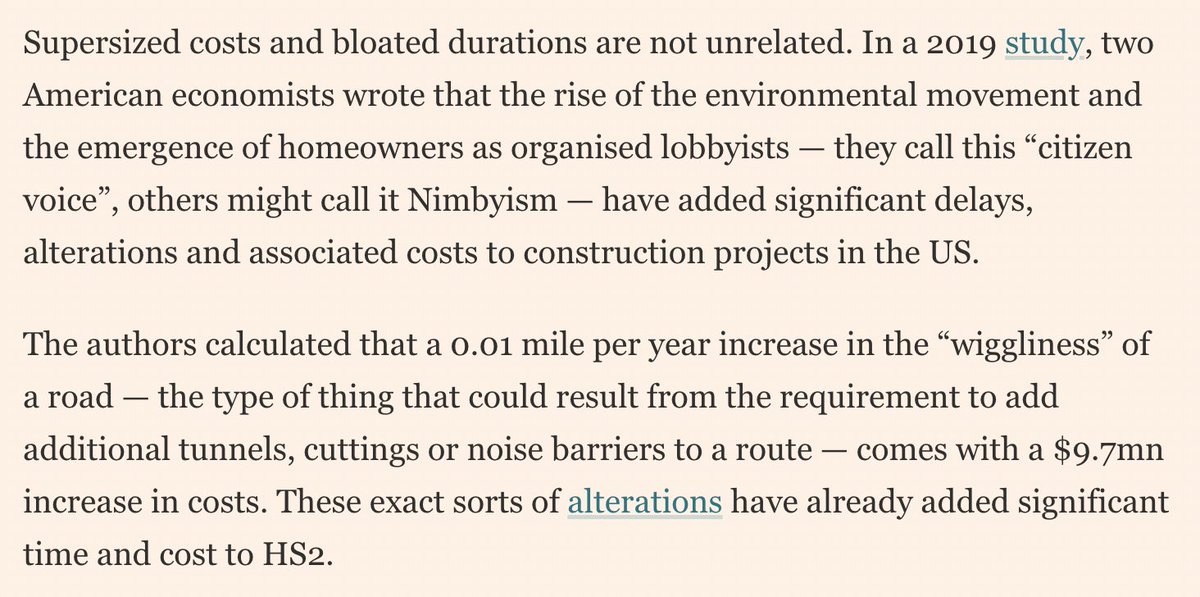
Ultimately, British people and British cities outside of London are getting a rough deal, this is constraining British productivity, and it’s all due in significant part to Nimbyism and our exceptional transport infrastructure costs.
My column this week: ft.com/content/9aa0fc…
My column this week: ft.com/content/9aa0fc…
• • •
Missing some Tweet in this thread? You can try to
force a refresh

 Read on Twitter
Read on Twitter



